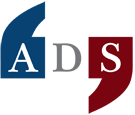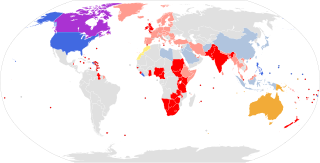Related Research Articles

Henry Louis Mencken was an American journalist, essayist, satirist, cultural critic, and scholar of American English. He commented widely on the social scene, literature, music, prominent politicians, and contemporary movements. His satirical reporting on the Scopes Trial, which he dubbed the "Monkey Trial", also gained him attention. The term Menckenian has entered multiple dictionaries to describe anything of or pertaining to Mencken, including his combative rhetorical and prose style.
Cable-Satellite Public Affairs Network is an American cable and satellite television network, created in 1979 by the cable television industry as a nonprofit public service. It televises proceedings of the United States federal government and other public affairs programming. C-SPAN is a private, nonprofit organization funded by its cable and satellite affiliates. It does not have advertisements on any of its television networks or radio stations, nor does it solicit donations or pledges on-air. The network operates independently; the cable industry and the U.S. Congress have no control over its programming content.
Webster's Dictionary is any of the English language dictionaries edited in the early 19th century by Noah Webster (1758–1843), an American lexicographer, as well as numerous related or unrelated dictionaries that have adopted the Webster's name in his honor. "Webster's" has since become a genericized trademark in the United States for English dictionaries, and is widely used in dictionary titles.

David Halberstam was an American writer, journalist, and historian, known for his work on the Vietnam War, politics, history, the Civil Rights Movement, business, media, American culture, Korean War, and later, sports journalism. He won a Pulitzer Prize for International Reporting in 1964. Halberstam was killed in a car crash in 2007, while doing research for a book.
Cornelius Mahoney Sheehan was an American journalist. As a reporter for The New York Times in 1971, Sheehan obtained the classified Pentagon Papers from Daniel Ellsberg. His series of articles revealed a secret United States Department of Defense history of the Vietnam War and led to a U.S. Supreme Court case, New York Times Co. v. United States, 403 U.S. 713 (1971), which invalidated the United States government's use of a restraining order to halt publication.

Merriam-Webster, Incorporated is an American company that publishes reference books and is mostly known for its dictionaries. It is the oldest dictionary publisher in the United States.

The American Dialect Society (ADS), founded in 1889, is a learned society "dedicated to the study of the English language in North America, and of other languages, or dialects of other languages, influencing it or influenced by it." The Society publishes the academic journal American Speech.
A Bright Shining Lie: John Paul Vann and America in Vietnam (1988) is a book by Neil Sheehan, a former New York Times reporter, about U.S. Army lieutenant colonel John Paul Vann and the United States' involvement in the Vietnam War.

Booknotes is an American television series on the C-SPAN network hosted by Brian Lamb, which originally aired from 1989 to 2004. The format of the show is a one-hour, one-on-one interview with a non-fiction author. The series was broadcast at 8 p.m. Eastern Time each Sunday night, and was the longest-running author interview program in U.S. broadcast history.

Despite the various English dialects spoken from country to country and within different regions of the same country, there are only slight regional variations in English orthography, the two most notable variations being British and American spelling. Many of the differences between American and British/Commonwealth English date back to a time before spelling standards were developed. For instance, some spellings seen as "American" today were once commonly used in Britain, and some spellings seen as "British" were once commonly used in the United States.
William Walter Prochnau was an American journalist. In 1996 he began working for Vanity Fair as a contributing editor.

Hedrick Smith is a Pulitzer Prize-winning former New York Times reporter and Emmy award-winning producer and correspondent. After serving 26 years with The New York Times from 1962-88 as correspondent, editor and bureau chief in both Moscow and Washington, Smith moved into television in 1989, reporting and producing more than 50 hours of long-form documentaries for PBS over the next 25 years on topics from the inside story of the terrorists who mounted the 9/11 attacks and Gorbachev’s perestroika to Wall Street, Walmart and The Democracy Rebellion of grassroots citizen reform movements. Smith has authored five best-selling books including The Russians, The Power Game: How Washington Works, and Who Stole the American Dream?, and co-authored several other books, including The Pentagon Papers and Reagan: The Man, the President. Smith is currently Executive Editor of the website ReclaimTheAmericanDream.org and the YouTube channel The People vs. The Politicians.

Telemundo is an American Spanish-language terrestrial television network owned by NBCUniversal Telemundo Enterprises, a division of NBCUniversal, which in turn is a wholly owned subsidiary of Comcast. It provides content nationally with programming syndicated worldwide to more than 100 countries in over 35 languages.

Merriam-Webster's Words of the Year are words of the year lists published annually by the American dictionary-publishing company Merriam-Webster, Inc. The lists feature ten words from the English language. These word lists started in 2003 and have been published at the end of each year.
Binyamin Appelbaum is the lead writer on business and economics for the editorial board of The New York Times. He joined the board in March 2019. He was previously a Washington correspondent for the Times, covering the Federal Reserve and other aspects of economic policy. Appelbaum has previously worked for The Florida Times-Union, The Charlotte Observer, The Boston Globe and The Washington Post. He graduated in 2001 from the University of Pennsylvania with a B.A. in history. He was an executive editor of the student newspaper, The Daily Pennsylvanian.
Television in Japan was introduced in 1939. However, experiments date back to the 1920s, with Kenjiro Takayanagi's pioneering experiments in electronic television. Television broadcasting was halted by World War II, after which regular television broadcasting began in 1950. After Japan developed the first HDTV systems in the 1960s, MUSE/Hi-Vision was introduced in the 1970s.
Forecast Earth is the name for The Weather Channel's environmental initiatives. It also was the name of an environment news program that ran on TWC from 2006 to 2008.
Children's programming has played a part in NBC's programming since its initial roots in television. This article outlines the history of children's television programming on NBC including the various blocks and notable programs that have aired throughout the television network's history on weekends.
Children's programming has played a part in Telemundo's programming since its initial roots in television. This article outlines the history of children's television programming on Telemundo including the various blocks and notable programs that have aired throughout the television network's history.

WGN America was an American subscription television network that operated from November 9, 1978 to February 28, 2021. The service was originally uplinked to satellite by United Video Inc. as a national feed of Chicago independent station WGN-TV, making the station's programming available to cable and satellite providers throughout the United States as the second nationally distributed "superstation".
References
- ↑ "C-Span's literary road trip - 2008-11-02 00:00:00 | Broadcasting & Cable". Broadcastingcable.com. Retrieved 2012-01-29.
- ↑ "Writings of William Bradford – C-SPAN Video Library". C-spanvideo.org. 2001-03-19. Retrieved 2012-01-29.
- ↑ "COVER STORY; A Sense of Place: Literature on Location - New York Times". The New York Times . 2001-04-22. Retrieved 2012-01-29.
- ↑ "C-SPAN Restarts 'American Writers' - 2002-03-25 00:00:00 | Multichannel News". Multichannel.com. Retrieved 2012-01-29.
- ↑ "A man of letters returns to city, courtesy of C-SPAN - Baltimore Sun". Articles.baltimoresun.com. 2002-04-08. Retrieved 2012-01-29.
- ↑ "Writings of Halberstam and Sheehan - C-SPAN Video Library". C-spanvideo.org. 2002-07-07. Retrieved 2012-01-29.
- ↑ "'American Writers II' focuses on 20th Century - Chicago Tribune". Articles.chicagotribune.com. 2002-03-29. Retrieved 2012-01-29.
- ↑ Smith, Alexis. "Merriam Webster's Dictionary of American Writers by Websters - Powell's Books". Powells.com. Retrieved 2012-01-29.
- ↑ Moore, Frazier (2001-03-16). "C-SPAN highlights American writers". Lawrence.com. Retrieved 2012-01-29.
- ↑ "C-SPAN "American Writers" Program on Ayn Rand a Sham". Aristos.org. 2002-05-12. Retrieved 2012-01-29.
- ↑ "About American Writers". americanwriters.org. C-SPAN. Archived from the original on 4 August 2001. Retrieved 11 March 2016.